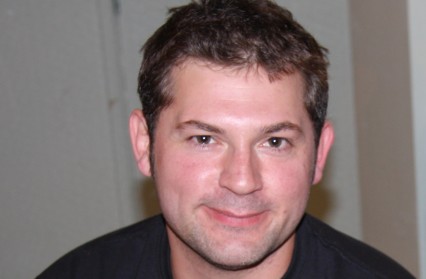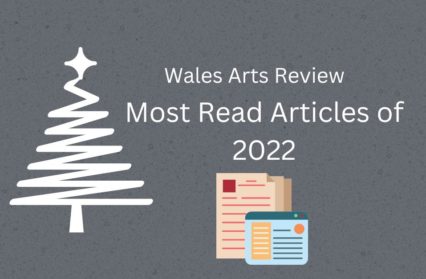Our Managing Editor Phil Morris caught up with Hijinx Artistic Director and Unity Festival Director Ben Pettitt-Wade during tech rehearsals for Beneath the Streets: Lost and Found, the much-anticipated immersive theatre collaboration between Hijinx and Punchdrunk Enrichment, to discuss the challenging and entertaining work being presented across the festival from 1st – 5th July.
Phil Morris: What motivated Hijinx to found the Unity festival?
Ben Pettitt-Wade: Hijinx creates inclusive theatre – all our productions feature learning-disabled performers alongside non-disabled performers. When we first launched Unity, and I think it’s still true today to an extent, it was very difficult for a company like ours – that worked in this inclusive way – to get [its work] seen by the wider general public. It was very difficult to get access to mainstream theatres. So Unity was a way of both showcasing the work we do, but also that of other fantastic companies from around the UK and all over the world. Over the years the situation has changed slightly, and I think now disability arts and inclusive arts is more prominent in the general consciousness of theatregoers.
Phil Morris: Do you think the London Paralympics of 2012 had something to do with that change, at least in terms of the UK?
Ben Pettitt-Wade: Absolutely, I think the Paralympics had a huge influence on the visibility of inclusive and disability arts, particularly the cultural events that were staged around the games. The establishment of the Unlimited Fund, which was specifically set up in 2012 to fund deaf and disabled artists’ work, really started to push the agenda for disability and inclusive arts. And, I think, Hijinx and the Unity Festival have also played a significant role in increasing the visibility of disabled performers and actors.
Phil Morris: The Unity Festival has grown massively in terms of audience numbers and participants…
Ben Pettitt-Wade: When we first did the festival I believe our audience figures were something like 1600 to 2000, and this year we’re hoping to reach over 13,000 people with our performances.
Phil Morris: How have you achieved this growth in audiences?
Ben Pettitt-Wade: Well the take up for the studio shows has increased over time. Also, the outdoor free events have become a much bigger element of the festival. This year we’re staging a big weekend of free performances on the 4th & 5th of July in The Hayes in central Cardiff centre. And the purpose of that weekend for us is that it’s a very simple way of engaging with lots of people who really wouldn’t expect or purposely go to see a piece of performance that is termed disability arts.
Phil Morris: The weekend performances have a strong family focus to them.
Ben Pettitt-Wade: I think if you’re programming public performances then you need to ensure that it’s going to be suitable and enjoyable for everyone. Our aim is to attract and entertain as many people as possible really.
Phil Morris: How did you discover the visiting international companies – from Mozambique, France, Germany, Belgium and Italy – in your programme?
Ben Pettitt-Wade: The piece from Mozambique is called Borderlines, and it was created by a choreographer Penaibra Gabriel Canda and his company Culturarte. I first saw it at a festival called No Limits in Berlin in 2013, and it just blew me away. It’s probably one of the most powerful pieces of performance that I’ve ever seen. The story is about the civil war in Mozambique, and the destruction that sort of conflict has on a country and its people. The piece is so raw and true that you can’t help but be completely moved by it.
The message of the piece is actually very uplifting – ultimately it’s a tale of redemption, of a country coming together. It has been something of a challenge for us, as a company, to get all the logistics sorted for this piece – the immigration visas, travel, etc. – but we’re really proud to bring the show here to Cardiff for its UK premiere.
Phil Morris: I’m really intrigued by Nessuno sa di noi / Nobody knows about us, the collaboration between Accademia Arte Della Diversita and Teatro La Ribalta.
Ben Pettitt-Wade: Yes, that features Julie Ann Stanzak, a beautiful dancer from the Pina Bausch Wuppertal Dance Theatre, which has a huge international reputation, in a two-handed piece with Mattia Perretto, an Italian performer with Down’s syndrome. That’s really quite an emotive story there, and it will be the first time that a company from Italy has taken part in Unity. We’ve also got Extension from Cirque Inextremiste. They’re a French acrobatic company that were also at Unity in 2013. This year, well I don’t want to give too much away, but their show features a balancing act between propane gas bulbs, wooden planks and a digger – it is jaw dropping stuff.
Phil Morris: And there are also several unticketed events happening in and around the Wales Millennium Centre that are free to the public?
Ben Pettitt-Wade: Yes. Stopgap are performing their new piece Bill and Bobby, which is an ingenious tribute to the partnership of Fred Astaire and Ginger Rogers. It features dancer Dave Toole, who is very well-known for his performance at the Paralympics opening ceremony. And we’ve got a really lovely piece called I Breathe – which I saw at the Liberty Festival in London last year – from Flying Diplodocus (Amelia Cabolo), who is a visually impaired musician and trapeze artist.
Phil Morris: What was the thinking behind including immersive theatre with studio performances and street entertainment in the Unity 2015 programme?
Ben Pettitt-Wade: I think it’s important that the field of disability arts and inclusive arts isn’t seen as just one thing. It can be immersive theatre in an empty building, it can be street performance. It can be pop-up performances in shared units and it can be studio theatre. We want to display the broadest spectrum of whatever is out there.
Phil Morris: What is your long term ambition with the Unity Festival – where does it fit within your long term goals for Hijinx?
Ben Pettitt-Wade: We at Hijinx want to continue to challenge ourselves to do work in new ways. And that’s what bringing in a company like Punchdrunk does for us. We’re always pushing what can be achieved by working inclusively, and challenging perceptions of what inclusive art is.
Phil Morris: And I suppose the artists involved in Hijinx learn a great deal from watching the visiting international companies?
Ben Pettitt-Wade: Absolutely, for us it’s a big opportunity to learn from all of the companies who are working in a similar way, nationally and internationally. And actually this year, we have a number of delegates visiting just to see people at the festival, to network, to make links with the aim of exploring potential for future collaboration and future projects.
Phil Morris: You mentioned earlier that the cast of Beneath the Streets: Lost and Found includes actors with learning disabilities and non-disabled actors. I understand that Hijinx runs academies for the training of actors with learning disabilities, could you explain how that works?
Ben Pettitt-Wade: The only reason we’re able to stage productions like Beneath the Streets is because we have our academy, which was set up in 2012 to specifically train performers with learning disabilities to work professionally. We started in Cardiff with about 12 students, who now come in two days a week and also participate in our residencies. These weeklong intensive residencies are delivered by leading theatre companies such as Complicite and Frantic Assembly. Our academy has created a company of actors, in a way, because they have all become very familiar with each other, very used to working together. They are also ready to work and are aware of the expectations of working in a professional rehearsal environment.
The Cardiff Academy has been so successful that we’ve now started to set up new academies across Wales. We’ve currently got one in north Wales, and 2015 will be the first year that actors from the north Wales academy will be performing at Unity, which is a great opportunity for them. The plan is to have a network of these academies that are within a ninety-minute drive for anyone who wants to access them.
Phil Morris: How do you define a learning disability?
Ben Pettitt-Wade: Well the definition, as we see it, can be quite broad and tends to include those on the Autistic spectrum and those with Down’s syndrome in the majority, but that’s not a solid rule. We have some people that might suffer from extreme anxiety for example.
Our specialism, if you like, is training adults with a learning disability and I think that’s different to working with other disabled artists, such as the visually and hearing impaired. Although that’s not to say that when we produce a piece of inclusive theatre performance it wouldn’t include someone with a learning disability alongside someone with another disability, it’s just that our training is focused on learning disability.
The Unity Festival is an event of which Wales should be very proud. At its core lies the belief that those who have been historically ignored or marginalised from so-called mainstream society should have access to public platforms, from which they are able to express their creativity as artists and make themselves visible as active citizens with a contribution to offer our communities. This at a time when disability campaigners are protesting against swingeing UK government cuts to their support services, particularly the proposed closure of the Independent Living Fund. It is therefore heartening to note that both Arts Council Wales and the Welsh government have committed funding to ensure the growth of the Unity over the next few years. Now it only remains for a Wales-based company to understand the true sense of the term social responsibility and make itself a proud corporate sponsor of this unique festival.
Wales Arts Review will be providing extensive coverage of Unity festival 2015 throughout this week. For details of the full festival action, including free shows, workshops and a whole weekend of free performances in Cardiff City Centre, go to hijinxunity.org.uk
Phil Morris is an editor and regular contributor to Wales Arts Review.












